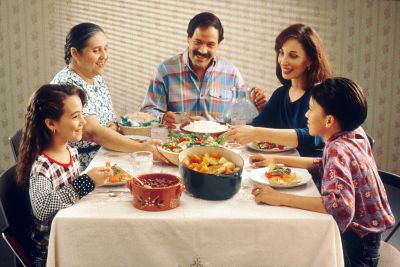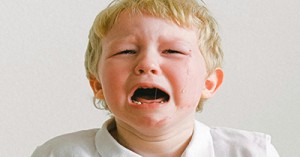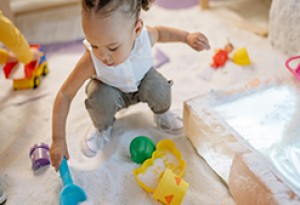You and your family are all sitting down at the table, enjoying a delicious meal. You look over at your child and instead of eating their food, they are playing with it. Not only that, they are chewing their food with their mouth open and burping loudly. Definitely not the table manners you were taught, when you were a child. Nevertheless, as your child begins to enjoy meals with the rest of the family, its time to start teaching your child table manners.
Most parents assume that their kids will automatically know how to act, what to do and what not to do and how to display proper table manners. Unfortunately this is not the case. This article will provide you with strategies and techniques you can use to ensure your child has great table manners.
How to Teach your Child Table Manners
From an early age your child is capable of learning table manners if you explain the purpose of them. There is no point saying “don’t talk with your mouth full” if your child doesn't understand why. Explain to your child that manners are used for showing kindness to others sitting at the table, whether they are eating at home, at a relative or friends place and in a restaurant. Family meals are a good time to teach your child table manners. Here are a few strategies you can use to teach your child to use table manners:
Washing Hands – It’s very important that you teach your child that they need to wash their hands before eating a meal or snack. Your child should be washing their hands with soap, under warm water for 20 seconds (get them to sing the ABC song while doing it). Remember to wash your own hands before you eat, your child will definitely be watching you.
Using cutlery – Even for a child it can be difficult to eat with a fork or a spoon. Encourage your child to hold their knife, fork and spoon correctly in each hand when eating meals at the table. Don’t think your child should know better, at times they tend to forget. Just gently encourage your child. For e.g. “Why don’t you try using a fork instead, it might be easier for you”.
Using hands – Once your child can use the cutlery, discourage them from picking up food with their hands during a meal. However there may be some exceptions, such as eating pizza, burgers, chicken nuggets and sandwiches (of course). In some cultures people actually use their hands for eating. In this case, it’s a good idea to show your child the correct way of eating with their hands.
Closing mouth while eating – Encourage your child to close their mouth while chewing their food. Typically, a child will indirectly let their mouth hang open while munching.
Wiping Mouth – Another habit that tends to pop up is your child wiping their mouth with either their hand or sleeve. Teach your child how to use a napkin, which they then can use for wiping their mouth and hands.
When the meal is finished – After your child has finished the meal, encourage them to sit in their seat and wait until you say it’s ok to leave. It’s also a good idea to teach your child to excuse themselves from the table when they are finished. For e.g. “can I please be excused”. This is far more polite, than hurrying through a meal, getting up and leaving to watch something on TV or play a video game.
Thanks for dinner – Remind your child to thank the cook for their meal, even if they didn't really enjoy it. Whoever put in the effort of cooking should be thanked and it’s a good habit to teach your child.
Be a role model – Your child is most likely to imitate anything you say and do. Make sure you practice table manners yourself. Set a positive example and soon enough your child will be reminding you of correct table manners.
As you begin to teach your child table manners, focus on a specific manner one at a time so your child doesn't get very confused. Too many rules all at once, can be a little overwhelming to remember and practice. It’s important for you and your child to realize that it is OK to make mistakes. You can’t expect your child to be perfect during the next family meal, your child may still play with their food, burp loudly or wipe their mouth on their sleeve but you need to keep gently reminding them and one day, it will automatically happen.
Family meal times are a great opportunity to gather the family at the end of the day and share exciting events and news. Your child will be looking forward to take part in this daily ritual. Along with the list above there are some other table habits which your child must learn. This includes taking turns to speak, passing items to each other and listening while others talk.










